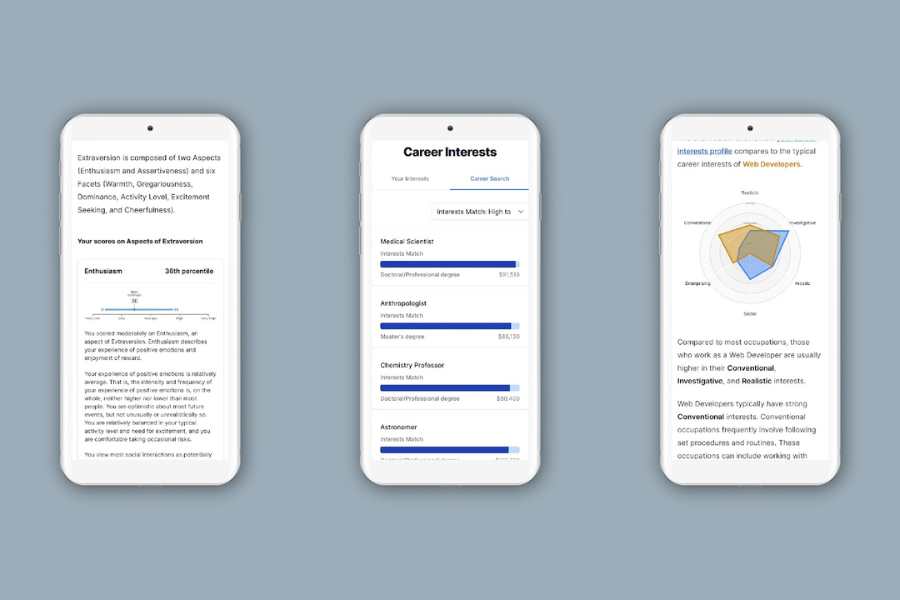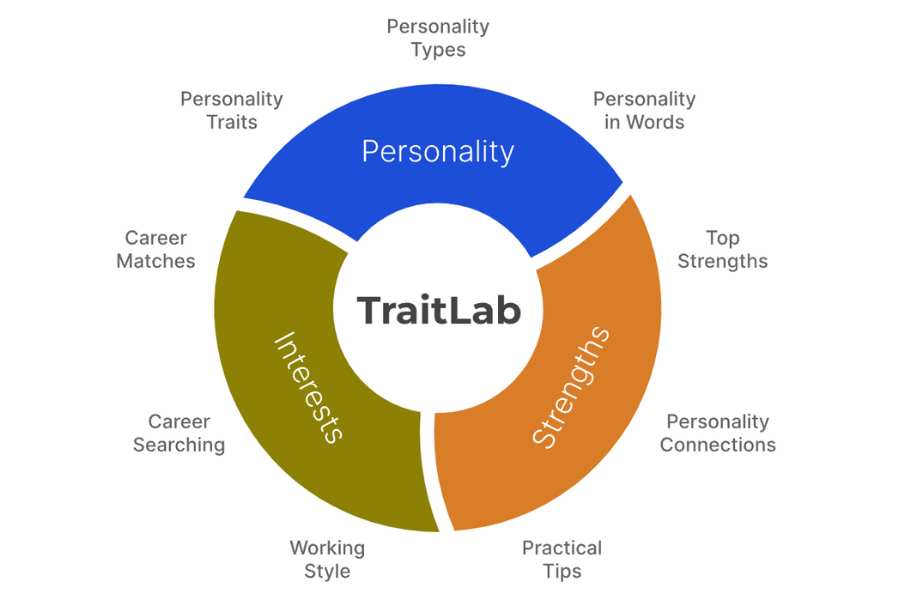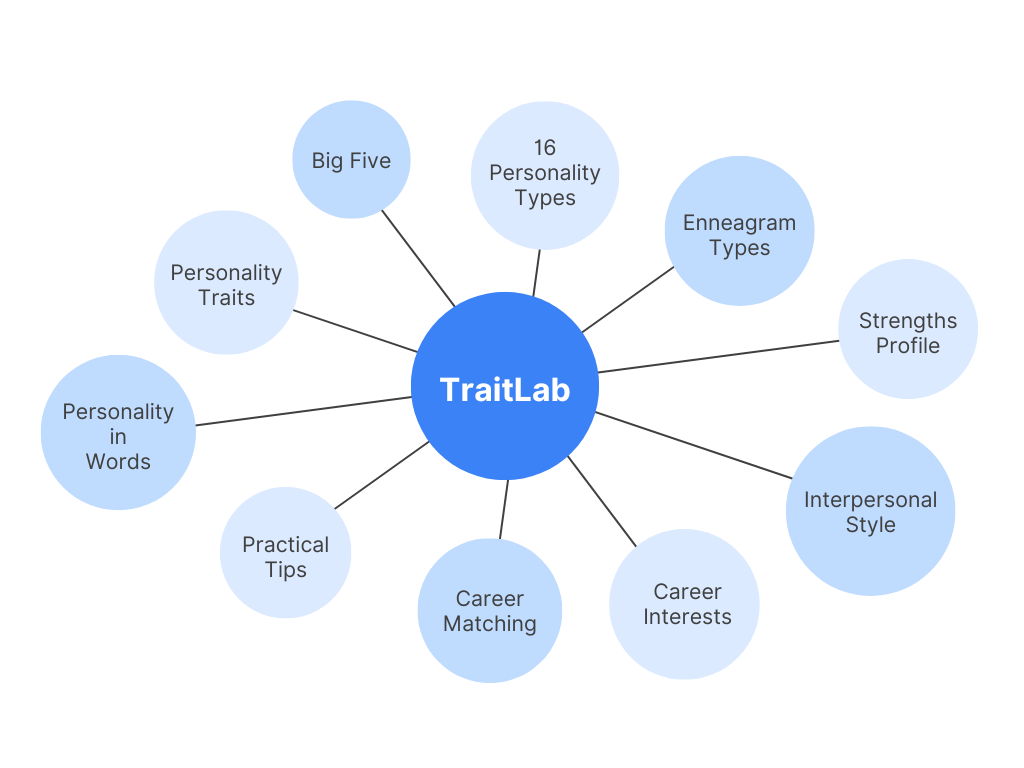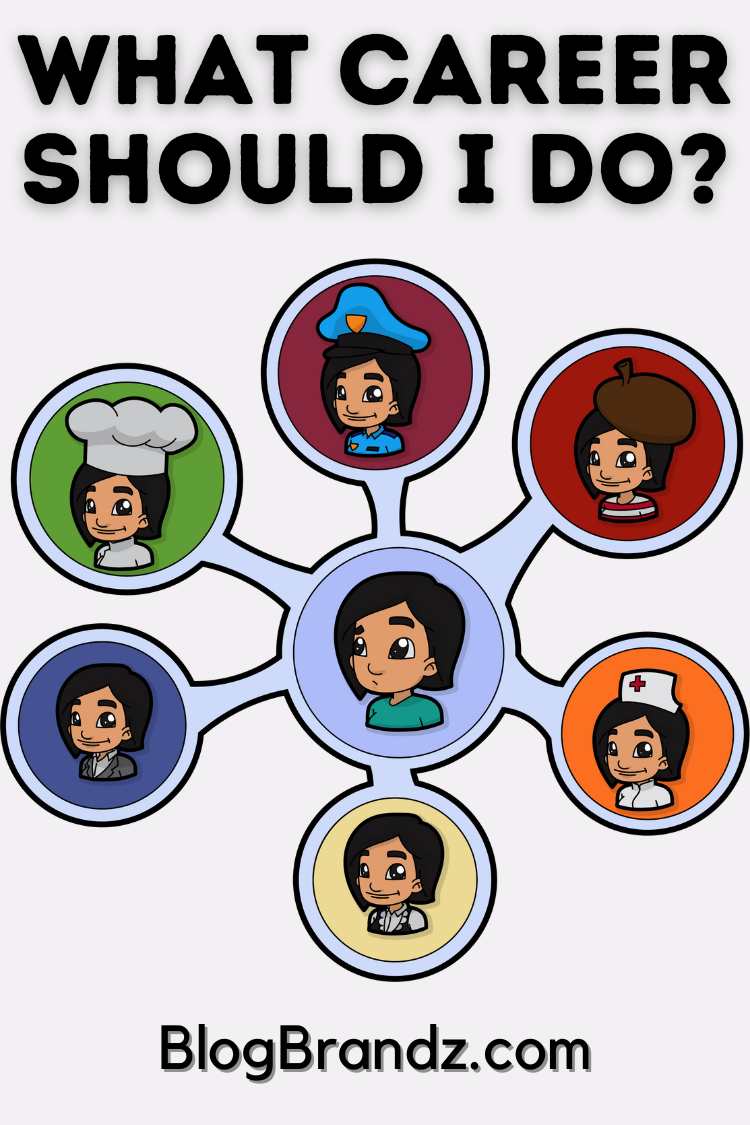What career is right for me? Discover how to choose a career that aligns with your passions and aspirations.
What should I do for a career? I don’t know what career I want! What should my career be? How to find the right career for me?
How to know what career is right for you? Choosing the best career for you is a decision that can significantly impact your life, both professionally and personally. It is an exciting chance to pursue what you love.
It’s crucial to take the time to select the right career path or make a change when needed. This decision can greatly impact your job satisfaction, fulfillment, and overall happiness.
When you’re in a career that aligns with your interests, skills, and values, you’re more likely to feel motivated and engaged in your work. This can lead to increased productivity, creativity, and success in your chosen field.
On the other hand, staying in a career that doesn’t fulfill you can lead to feelings of dissatisfaction, burnout, and even physical and mental health issues. Making a career transition can be a daunting prospect, but it can also be a rewarding one.
Understanding what identifies your skills and interests can help you effectively plan out your career goals. It’s important to assess your current situation and determine if your career is truly fulfilling your needs and goals.
If not, taking the time to explore other options and make a change can lead to a more fulfilling and successful career path. Ultimately, choosing the right career or making a career transition when required is about taking control of your professional life and ensuring that you’re on a path that aligns with your values and aspirations.
Contents
- How Can I Choose the Best Career For Me?
- Career Finder FAQs
- What are four important factors to remember before making a career decision?
- What is an example of an interest leading to a career choice?
- What factors should you consider when narrowing down your career choices?
- What is not taken into account when determining a person’s career path?
- How could the proximity principle help you find a career that you love?
- Which career makes the most money?
- What is a career cluster?
- What is career planning?
- What is career mapping?
- What is a career pathway?
- What is career pathing?
- Career Tips & Tools
How Can I Choose the Best Career For Me?
By taking the time to make an informed career decision, you can set yourself up for long-term success and happiness in your career. Here are some steps to help you make a decision:
#1. Do a Self-Assessment
How to figure out what career you want? Start by assessing your interests, skills, and values. Doing a “what career is right for me quiz” can help you identify potential career paths that align with who you are. Here are some questions to ask yourself:
- What activities do you enjoy?
- What are you passionate about?
- What are you good at?
- What kind of work environment do you thrive in?
- What values are important to you in a career?
A career personality test is a type of personality assessment test designed to help individuals understand their unique personality traits and how they relate to various career paths.
This “what career is right for me test free” typically involves answering a series of questions about preferences, behaviors, and attitudes, which are then analyzed to provide insights into suitable career options.
Career personality tests can provide insights into your personality traits and how they relate to different career paths. While not definitive, they can help you explore options you may not have considered.
Here are some of the career personality tests you may want to consider:
- Myers-Briggs Type Indicator (MBTI): This test categorizes individuals into one of 16 personality types based on preferences related to how they perceive the world and make decisions, offering insights into suitable career paths.
- Holland Code (RIASEC): This test categorizes individuals into one of six personality types (Realistic, Investigative, Artistic, Social, Enterprising, and Conventional), suggesting career options that align with their personality.
- Big Five Personality Traits: This test evaluates individuals based on five key personality traits (Openness, Conscientiousness, Extraversion, Agreeableness, Neuroticism), offering insights into how these traits relate to different career paths.
- StrengthsFinder: This test identifies an individual’s top five strengths out of a list of 34, highlighting areas where they excel and suggesting career paths that leverage these strengths.
- DISC Assessment: This test categorizes individuals into one of four personality types (Dominance, Influence, Steadiness, Conscientiousness), providing insights into communication styles and preferred work environments.
- Enneagram: This test categorizes individuals into one of nine personality types, offering insights into motivations, fears, and behaviors that can inform career choices.
- CareerLeader: This test combines interests, motivators, and abilities to provide a comprehensive analysis of an individual’s career interests and potential paths.
Career personality tests are often used in career counseling, recruitment, and personal development contexts to guide individuals toward fulfilling and compatible career choices.
The results can help individuals identify their strengths, weaknesses, interests, and work style preferences, which can be valuable information when making decisions about education, training, or job opportunities.
TraitLab offers incredibly detailed, comprehensive, scientific personality assessments to help you learn your personality traits, clarify your career interests, and identify your strengths.
Built by a Ph.D. research psychologist to help you sharpen your self-knowledge, TraitLab’s career personality test uses assessments and concepts from actual scientific research and then makes it easy to see how your results relate to important life areas.
It will help you answer the question “What career is best for me?” by sorting hundreds of career paths by your unique personality match, salary, and education, and learning the common patterns between the types of careers that fit you well and those that don’t.
Your TraitLab career personality test offers a comprehensive analysis of your personality traits, including 45+ traits and 16 personality types, along with Enneagram insights.
It also provides a strengths profile, career interests analysis, and the ability to match and compare over 700 career paths to answer the question: what career should I pursue?
You can dive deep into the details of any career path to see how your personality profile aligns with it. Explore common day-to-day tasks, psychological demands, required training and expertise, salary ranges, and more to make informed decisions about your career path.
#2. Research Different Careers
Researching different career options can be a daunting task, but breaking it down into actionable steps can make it more manageable. Here are some tips to help you research different careers effectively:
- Identify Your Interests and Skills: Identify your interests, skills, and values. This will help you narrow down your options and focus on careers that align with who you are.
- Explore Job Descriptions: Read job descriptions for roles that interest you. Pay attention to the daily responsibilities, required qualifications, and skills.
- Consider Salary Expectations: Research salary expectations for different careers to ensure they align with your financial goals. Consider factors such as location and experience level.
- Investigate Job Outlook: Look into the job outlook for the careers you’re interested in. Consider factors such as growth opportunities and industry trends.
- Educational Requirements: Determine if further education or training is needed for your desired career path. Consider the time and financial investment required.
- Conduct Informational Interviews: Reach out to professionals in your desired field for informational interviews. Ask about their experiences, challenges, and advice for entering the industry.
- Weigh the Pros and Cons: Make a list of the pros and cons of each career option. Consider factors such as job satisfaction, work-life balance, and long-term growth potential.
- Consider Qualifications: Evaluate your qualifications and skills against the requirements of each career option. Determine if you need to acquire new skills or certifications.
- Reflect on Your Values: Consider how each career aligns with your values and long-term goals. Choose a career that will bring you fulfillment and allow you to make a positive impact.
- Seek Guidance: Don’t hesitate to seek guidance from career counselors, mentors, or professionals in the field. They can provide valuable insights and advice based on their experiences.
By following these tips, you can thoroughly research different career options and choose a career path that aligns with your interests, values, skills, and goals.
#3. Set Career Goals
Career goals are specific objectives or milestones that individuals set for themselves to achieve in their professional lives. These goals can vary widely depending on the individual’s aspirations, interests, and circumstances.
Setting clear goals is essential in determining the direction of your career. Ask yourself: what are your career goals? Begin by defining what success means to you. Define your short-term and long-term career goals.
Consider what you want to achieve and how each potential career aligns with your goals. Consider if you want to achieve a specific salary, attain a certain level of responsibility, or make a particular impact on the world.
These goals will serve as your guiding light, helping you narrow down your career options. Once you have completed your career goal-setting process, focus on careers that align with them.
This will ensure that you are working towards a career that not only fulfills you but also helps you achieve your long-term objectives.
#4. Seek Career Guidance
Seeking guidance from others can provide valuable insights and perspective as you navigate your career path. Talk to professionals in your desired field, career counselors, mentors, and others who can provide insights and guidance based on their experiences.
Career counselors can offer career assessments and advice tailored to your unique situation. Mentors can provide guidance based on their own experiences and help you avoid common pitfalls.
Professionals in your desired field can offer insights into the industry and provide networking opportunities. Don’t be afraid to reach out and ask for help; many people are willing to offer support and guidance to help you succeed in your career.
#5. Gain Experience
Gaining experience is crucial to determine if a career path is the right fit for you. Internships, volunteering, job shadowing, or part-time jobs in your desired field can provide hands-on experience and insight into the day-to-day realities of the job.
This experience not only helps you confirm your interest in the field but also allows you to build valuable career skills and connections that can benefit your career in the long run.
This can help you determine if a career is the right fit for you. Additionally, gaining experience can help you stand out to potential employers and increase your chances of securing a full-time position in your desired field.
#6. Make a Decision
Deciding on your career can be daunting, but it’s important to remember that it’s okay to change paths if your interests and goals evolve. After gathering all the necessary information, take some time to reflect on what you’ve learned.
Consider how each option aligns with your interests, values, and goals. Trust your instincts and make a decision that feels right for you at this moment.
Remember, your career is a journey, and it’s okay to change directions as you grow and learn. The most important thing is to find a career that brings you fulfillment and allows you to use your talents to make a positive impact.
#7. Pursue Skills Development
Skills development is essential for advancing in your desired career path. Start by identifying the specific skills or qualifications needed for your chosen field.
This may involve pursuing further education, such as a degree or certification program, to gain the necessary knowledge and expertise.
Additionally, consider seeking out training opportunities, either through workshops, online courses, or on-the-job training, or on platforms like Udemy and Coursera to enhance your skills, as follows:
- Identify Your Skill Gaps: Determine which skills you need to develop to advance in your career or switch to a new field.
- Explore Course Options: Search for courses on Udemy and Coursera that align with your skill development goals. Both platforms offer a wide range of courses in various subjects.
- Read Reviews and Ratings: Before enrolling in a course, read reviews and ratings from other learners to ensure the course meets your expectations.
- Enroll in Relevant Courses: Enroll in courses that will help you develop the skills you need. Look for courses that offer practical, hands-on learning experiences.
- Set a Schedule: Create a study schedule that fits your lifestyle and allows you to complete the course at a comfortable pace.
- Engage with the Material: Take notes, complete assignments, and participate in discussions to fully engage with the course material.
- Apply Your Learning: Look for opportunities to apply your new skills in real-world situations, such as through work projects or personal projects.
- Seek Feedback: Ask for feedback from colleagues, mentors, or course instructors to gauge your progress and identify areas for improvement.
- Complete the Course: Work towards completing the course and obtaining any certifications or badges offered upon completion.
- Update Your Resume and LinkedIn Profile: Update your resume and LinkedIn profile to reflect the new skills you have acquired.
By following these steps, you can effectively achieve career skills development on sites like Udemy and Coursera and enhance your professional growth and opportunities.
Networking with professionals in your desired field can also provide valuable insights and opportunities for skills development. By continuously seeking to improve your skills, you can position yourself for success in your chosen career path.
Career Finder FAQs
What are four important factors to remember before making a career decision?
The answer is to self-assess, research different careers, follow career goal setting, and seek advice. Before making a career decision, it’s crucial to self-assess, and understand your strengths, weaknesses, interests, and values.
This introspection helps align your career choice with who you are. Next, research various careers to match your self-assessment with available opportunities. Consider factors like job market demand, growth potential, and alignment with your values.
Set clear career goals based on your findings, creating a roadmap for your professional journey. Finally, seek advice from mentors, career counselors, or professionals in your desired field. Their insights can provide valuable perspectives and help you make an informed decision.
What is an example of an interest leading to a career choice?
An example of an interest leading to a career choice could be someone who has a passion for helping others and a strong interest in biology.
This person might choose a career as a healthcare professional, such as a nurse or doctor, where they can combine their interest in biology with their desire to make a positive impact on people’s lives.
What factors should you consider when narrowing down your career choices?
When narrowing down your career choices, consider factors such as your skills, interests, values, lifestyle preferences, salary expectations, job market demand, and potential for growth and advancement.
What is not taken into account when determining a person’s career path?
When determining a person’s career path, several factors are often not taken into account, including:
- Personal Values: The alignment of a career with one’s values and beliefs is often overlooked. A career that conflicts with one’s values can lead to dissatisfaction and disengagement.
- Interests and Passions: Sometimes, individuals are guided towards careers based on external factors or expectations, rather than their true interests and passions.
- Personality Traits: Certain careers may be better suited for specific personality types. Ignoring this can lead to a mismatch between the individual and their career path.
- Life Goals and Aspirations: Long-term goals and aspirations, such as work-life balance, personal growth, and fulfillment, are often not considered when choosing a career path.
- Skills and Abilities: While skills and abilities are important considerations, they are not always assessed comprehensively. Overlooking certain skills or not recognizing their potential can limit career options.
- Market Trends and Future Outlook: Failing to consider market trends and the future outlook of a chosen career path can result in entering a field with limited growth opportunities or high competition.
- Financial Considerations: While financial stability is a crucial factor, it should not be the sole determinant of a career choice. Focusing on what career makes the most money can lead to dissatisfaction if other aspects are not considered.
- Social and Environmental Impact: Some individuals may prioritize meaningful careers that make a positive impact on society or the environment. This factor is often not given enough weight in career decisions.
- Work Environment and Culture: The work environment and organizational culture can significantly impact job satisfaction. This factor is often overlooked in favor of other considerations.
- Career Path Flexibility: Considering the flexibility of a chosen career path to adapt to changing circumstances and interests is important but is sometimes not given enough attention.
How could the proximity principle help you find a career that you love?
The “proximity principle” popularized by author Ken Coleman, emphasizes the importance of building relationships with people who are doing work you’re interested in and are in places you want to be.
It suggests that you become the average of the five people you spend the most time with and that your career success can be greatly influenced by being in proximity to those who are already successful in the areas you’re interested in.
The proximity principle can help you find a career you love in several ways:
- Networking Opportunities: By connecting with professionals in your desired field, you can gain valuable insights, advice, and potential job leads that you may not have been aware of otherwise.
- Learning from Experts: Building relationships with experienced professionals allows you to learn from their experiences, mistakes, and successes. This can help you make more informed decisions about your career path.
- Access to Opportunities: Knowing the right people can open doors to job opportunities, internships, or mentorships that may not be publicly advertised. This can give you a competitive edge in finding a career you love.
- Inspiration and Motivation: Interacting with passionate and successful individuals in your desired field can inspire you and motivate you to pursue your own career goals with renewed vigor.
- Building Confidence: By networking and engaging with professionals in your field of interest, you can build confidence in your abilities and strengthen your belief that you can succeed in a career you love.
If you were asked to list two areas of interest for your career and explain how you can use the proximity principle to explore those careers, here’s an example response you can give:
Areas of Interest:
- Digital Marketing: I’m fascinated by the ever-evolving landscape of digital marketing and its impact on consumer behavior. I’m particularly interested in social media marketing and content creation.
- Product Management: I enjoy problem-solving and collaborating with cross-functional teams to create innovative products that meet user needs.
Using the Proximity Principle:
Digital Marketing:
To explore a career in digital marketing, I can use the proximity principle by attending industry conferences, joining digital marketing communities, and networking with professionals in the field.
By surrounding myself with successful digital marketers, I can learn about the latest trends, tools, and strategies, and gain valuable insights into the industry.
Product Management:
For product management, I can use the proximity principle by seeking out mentorship from experienced product managers, participating in product management workshops, and connecting with professionals in the field through LinkedIn or industry events.
By immersing myself in the world of product management, I can gain a deeper understanding of the role and develop the skills necessary to excel in the field.
Overall, the proximity principle underscores the importance of surrounding yourself with people who can support, guide, and inspire you as you navigate your career journey, ultimately helping you find a career that aligns with your passions and goals.
Remember, career paths are not always linear, and it’s okay to explore different options before finding the right fit. It’s important to choose a career that brings you fulfillment and aligns with your values and goals.
Which career makes the most money?
The career that makes the most money can vary widely depending on various factors such as location, industry, level of experience, and education. Generally, careers in medicine, law, finance, and technology tend to be among the highest-paying.
Surgeons, anesthesiologists, and orthodontists often rank among the highest-paying jobs in the United States, according to the Bureau of Labor Statistics. In finance, roles such as investment banking, hedge fund management, and private equity can be highly lucrative.
In the technology sector, roles such as software engineering, data science, and artificial intelligence are known for their high salaries. However, it’s important to consider that while these careers can be financially rewarding, they often require extensive education, training, and experience.
What is a career cluster?
A career cluster is a group of related occupations and industries with common features. These features can include similar skills, knowledge, and tasks. Career clusters are used to organize and categorize different career options to help individuals explore and navigate potential career paths.
The U.S. Department of Education has identified 16 career clusters, each representing a different area of the workforce. These clusters encompass a wide range of industries and occupations, such as healthcare, technology, business, arts and communication, and more.
Career clusters are often used in education and workforce development to help students and job seekers understand the variety of career options available to them and to make informed decisions about their education and training paths.
By exploring career clusters, individuals can identify their interests, strengths, and goals, and align them with specific career pathways that best suit their aspirations and abilities.
What is career planning?
Career planning is the process of setting goals and creating a roadmap to guide your professional development and advancement. It involves assessing your skills, interests, values, and goals to make informed decisions about your career path.
Career planning typically includes the following steps:
- Self-Assessment: Evaluate your interests, values, skills, and personality traits to gain insight into potential career paths that align with your strengths and preferences.
- Exploration: Research different industries, occupations, and career paths to learn about the job market, required qualifications, growth opportunities, and potential challenges.
- Goal Setting: Define short-term and long-term career goals based on your self-assessment and exploration. Your goals should be specific, measurable, achievable, relevant, and time-bound (SMART).
- Skill Development: Identify the skills and knowledge you need to achieve your career goals and create a plan to acquire them through education, training, or on-the-job experiences.
- Networking: Build relationships with professionals in your field of interest to gain insights, advice, and potential job opportunities. Networking can help you expand your professional connections and advance your career.
- Job Search Strategies: Develop effective job search strategies, such as creating a compelling resume, preparing for interviews, and leveraging online job boards and professional networks.
- Professional Development: Continuously seek opportunities to enhance your skills, knowledge, and expertise through training, certifications, and professional development programs.
- Adaptability: Remain flexible and open to new opportunities and challenges. Your career plan may evolve as you gain experience and new insights.
Career planning is an ongoing process that requires reflection, evaluation, and adjustment as you progress in your career. By actively managing your career path, you can increase your job satisfaction, achieve your professional goals, and build a rewarding and successful career.
What is career mapping?
Career mapping is a process of creating a visual representation of your career goals and the steps or milestones you need to achieve them.
A career map can help you to understand your current position in your career, identify the skills and experiences you need to acquire to advance and create a plan for achieving your career goals.
Career mapping is often done in the form of a visual diagram or chart that illustrates your current position and the steps or milestones you need to pursue to reach your desired career position.
It may also include information about your skills and experiences, as well as any additional training or education you may need to obtain to reach your goals.
Career mapping can be a helpful tool for individuals who want to understand their career options and create a plan for achieving their goals.
It can also be helpful for organizations, as it can provide a way to identify and develop the skills and talent of their employees.
To create a career map, you may need to consider your career goals, your current skills, and experiences, and any additional training or education you may need to pursue to reach your goals.
You may also want to research different career options and industries and seek out the guidance and support of mentors or other professionals in your field.
What is a career pathway?
A career pathway is a series of connected education and training programs, work experiences, and credentials that enable individuals to secure employment and advance in a specific industry or occupation.
Career pathways are designed to help individuals identify and pursue opportunities for career advancement and growth. A career pathway typically includes the following components:
- Entry Points: Various entry points into the pathway, such as internships, apprenticeships, entry-level positions, or educational programs, depending on the individual’s starting point and goals.
- Education and Training: Structured education and training programs, such as degree programs, certifications, or on-the-job training, to develop the skills and knowledge needed for career progression.
- Work Experience: Opportunities for gaining relevant work experience, such as internships, part-time jobs, or volunteer work, to build skills, network, and demonstrate competence in the field.
- Credentials: Attainment of industry-recognized credentials, licenses, or certifications that validate skills and knowledge and enhance employability and advancement opportunities.
- Career Lattices: Opportunities for lateral movement within the industry or occupation, allowing individuals to explore different roles and gain diverse experiences while advancing their careers.
- Support Services: Access to support services, such as career counseling, mentoring, financial aid, and job placement assistance, to help individuals navigate their career pathways successfully.
- Advancement Opportunities: Clear pathways for career advancement, including opportunities for promotion, salary increases, and leadership roles, based on performance and skills development.
Career pathways are designed to be flexible and adaptable to accommodate individuals’ diverse backgrounds, goals, and interests. They provide a structured framework for career planning and development, helping individuals navigate their career journeys and achieve their professional aspirations.
What is career pathing?
Career pathing is the process of planning and developing a career path or a series of steps or milestones that you pursue to achieve your career goals.
Career pathing can involve setting goals, identifying skills and experiences necessary or helpful for achieving those goals, and creating a plan to acquire those skills and experiences.
Career pathing can be helpful for individuals who want to advance their careers or explore new career options. It can help organizations identify and develop the skills and talent of their employees.
There are many different approaches to career paths, and the specific steps and strategies involved may vary depending on your goals, industry, and personal circumstances.
Some common elements of career pathing may include:
- Identifying your strengths, skills, and interests
- Setting specific career goals and objectives
- Researching and exploring different career options and industries
- Building a network of contacts and mentors
- Seeking out training and development opportunities
- Seeking promotions or job changes to advance your career
Career pathing is not a one-time process, but rather an ongoing process of learning and development. It helps to periodically review and update your career path as your goals and circumstances change.
Career Tips & Tools
- Free TraitLab Career Personality Test
- Free CareerFitter Career Test
- Free Enneagram Personality Test
- Unlock Your Potential With a Personality Test
- Build Your Resume: Free Resume Builder Tools
- ChatGPT Prompts for Resume/CV Writing
- Can I Manifest my Dream Job by Writing my Ideal Job?
- 27 Career Goal-Setting Steps to Land Your Dream Job
- 21 Best Occupations for the Most Meaningful Careers
- How To Love Your Work and Love Your Job
- How To Become Famous And Get Recognition In Your Industry
- How To Learn Powerful Negotiation Skills In The Workplace
- Local Networking Tips For Effective Professional Networking
© 2024, Priya Florence Shah. All rights reserved.
Priya Florence Shah is a bestselling author and an award-winning blogger. Check out Devi2Diva, her book on emotional self-care for women. In her spare time, Priya writes science-fiction novels and poetry and chills with her two-legged and four-legged kids.
Discover more from Business & Branding Tips
Subscribe to get the latest posts sent to your email.




























